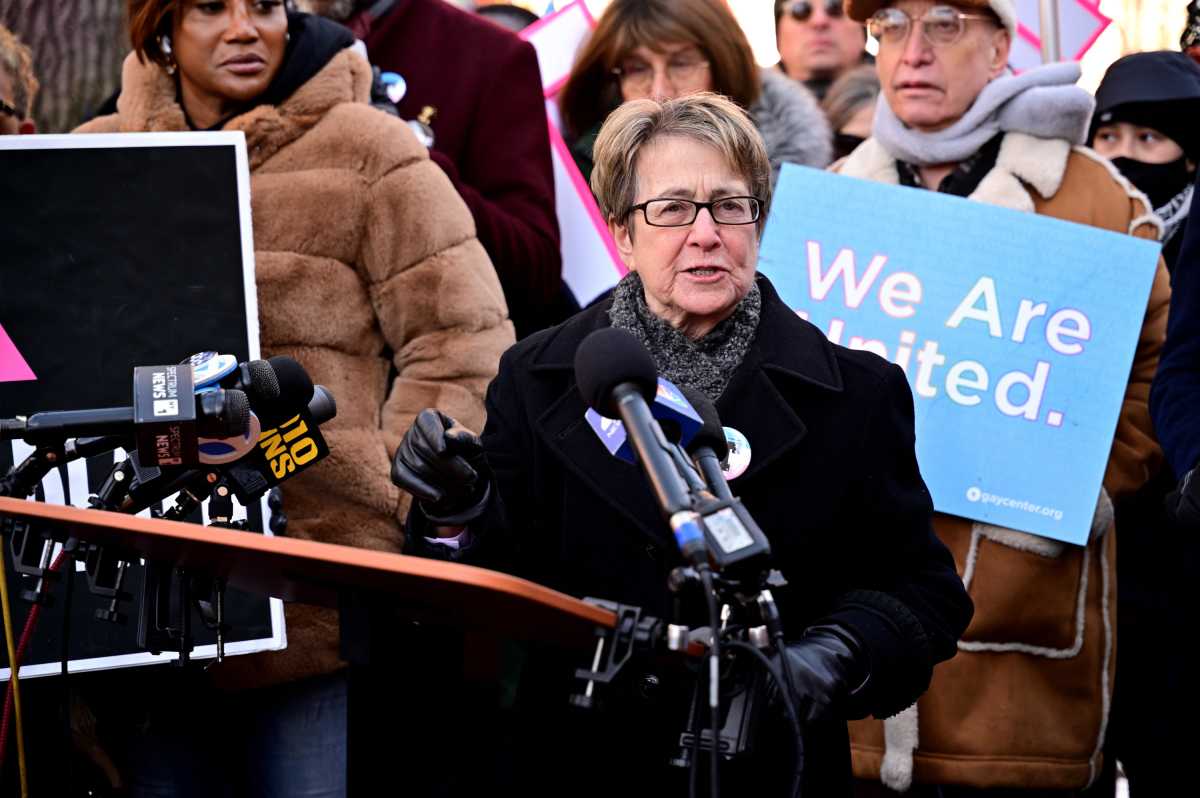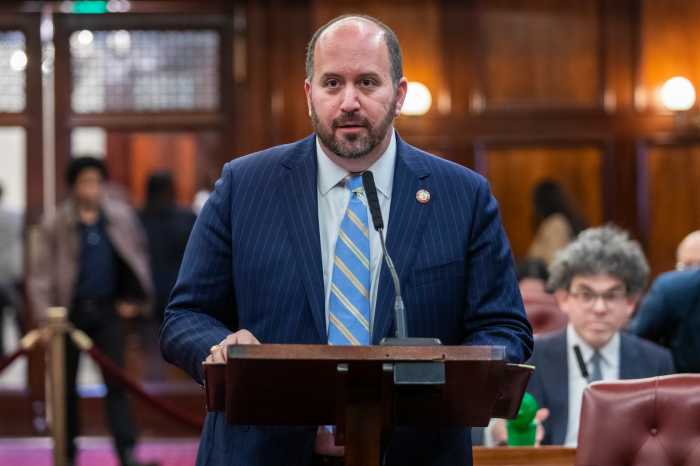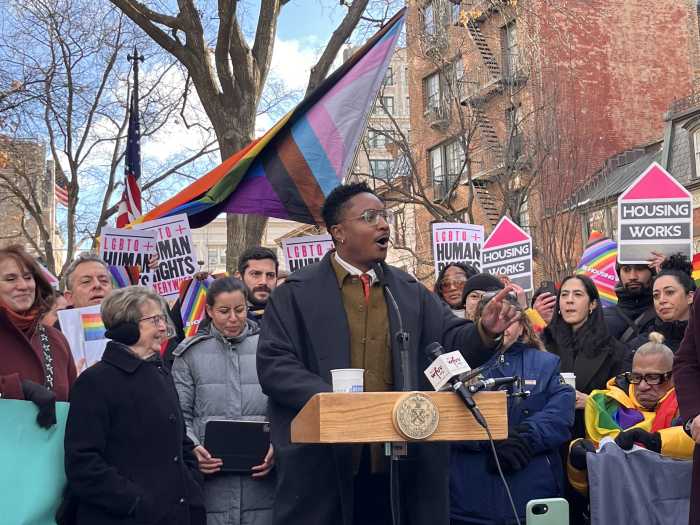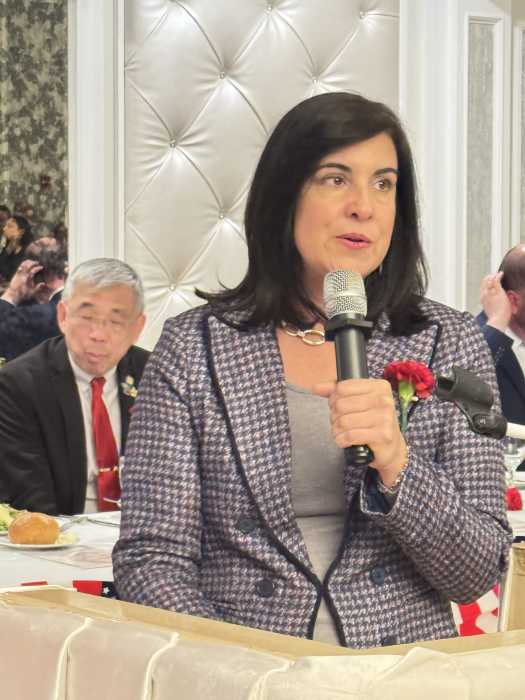Manhattan Assemblymember Deborah Glick, who became the first out member of the New York State Legislature when she was elected in 1990, announced she will not seek re-election in 2026, capping a robust political career spanning more than three decades of work in Albany.
“The end of my term will be next year, and if I ran for re-election, I would have to commit to three years, not just one year, and I had to think about whether I could continue to do this at the same level that I believe my constituents deserve,” Glick said in an interview with Gay City News on Oct. 27. “And the answer I had to give myself was, I really couldn’t. It’s very demanding. I’ve done it for 35 years and I didn’t think I could do it for 38.”
Glick, 74, has built a reputation for standing up for LGBTQ rights, reproductive freedom, environmental causes, and other issues over the course of more than three decades as a state lawmaker representing District 66, which encompasses Manhattan’s west side from 16th Street down to Vesey Street on the edge of the World Trade Center. Glick previously represented District 61 for the first couple of years of her tenure in the State Legislature.
Reflecting on her first election victory, Glick recalled the community’s frustration over the lack of LGBTQ representation — “a sense that we were not part of the whole New York,” she said.
Determined to change that, Glick and others gathered in the living room of Thomas Duane, who also made history multiple times — initially as the first out member of the City Council and again when he became the first out member of the State Senate.
“There was a thought that if we ran for a seat that was a two-year seat — I had connections to the women’s community, tenants, environmentalists — that I probably wouldn’t win the first time,” Glick said. “But if I did well enough, I could come back in two years and make another run.”
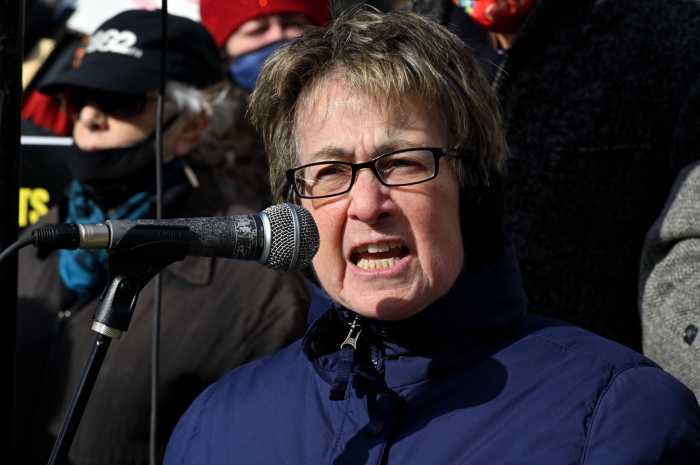
Glick may have underestimated her own chances. The race ultimately shifted dramatically, she recalled, when the incumbent opted not to run.
“We worked hard and we were successful the first time out,” she said. “It was empowering for the community. It was exciting. I felt a real sense of responsibility, not just to the community, but to conduct myself in a way that elevated the visibility of the community and the way in which other districts in the state viewed the LGBTQ community.”
Over the last three-plus decades, Glick acknowledged that the community went through what she described as “a very tough period” in the AIDS crisis — especially when it came to the death toll and the lack of government support. The memories of those battles also serve as a reminder of the community’s renewed vulnerability in the face of anti-LGBTQ backlash, especially targeting transgender individuals.
“The difference now,” she said, “is that the hostility towards us is hostility towards immigrants, women, and people of color, so there is a broader range of folks being attacked.”
Glick said the AIDS crisis had the effect of uniting the LGBTQ community, ultimately paving the way for future gains. Glick’s proudest accomplishments include legalizing marriage equality, codifying Roe v. Wade in the state, and adding protections to the New York State Constitution, she said. Among other achievements, Glick successfully carried the bill to ban conversion therapy among minors in New York State and co-sponsored bills such as the Gender Expression Non-Discrimination Act (GENDA), which added non-discrimination protections for trans and non-binary individuals.
More than anything else, Glick never thought she would have the opportunity to vote for marriage equality, which she said represented a dramatic sea change in the public view of the community.
“Now we’re seeing a lot of backsliding, or pushback, around the transgender community because it’s not as well understood, which was exactly where the [lesbian and gay] community was 25-30 years ago,” Glick explained. “I think even in our own community, there are folks who are misinformed.”
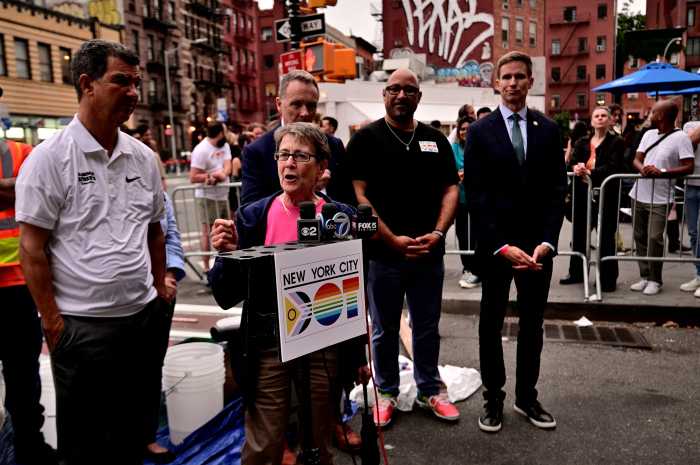
Among other victories, Glick said raising the visibility and normalizing the reality of gay elected officials would rank second on her list of top accomplishments.
“There have been many more lesbian and gays elected to office, and I see that as a part of what I helped accomplish by breaking that ceiling,” she said.
Glick made it clear that she has unfinished business during her time in office. In her statement announcing her decision not to run for re-election, she warned that people’s health is threatened by chemicals in everyday products and by packaging made from fossil fuels and toxic materials. She said she would work to reduce excessive packaging that threatens people’s health and the planet.
Glick has also continued to remain active in the fight for LGBTQ rights. In late September, she joined a demonstration calling out the Trump administration for pulling millions in education funding from New York City due to its trans-inclusive policies.
“It’s very painful for me, personally, to see all the progress we have made for decades is on sand and they’re looking to erode it out from under us,” she said at the rally. “We won’t let that happen. We can’t let that happen.”
Glick hopes her successor focuses on constituent services, which she believes is an important part of the job — including helping people navigate various bureaucracies such as the healthcare system and housing, as well as issues like historic preservation.
“We have some very important sites that should not see the wrecking ball — like the White House,” she said. “And I think there needs to be a focus on issues that people care about: Affordable housing that is really affordable, and more access to quality healthcare and open space. People are very stressed by the current political situation and people need to have outlets that support their mental health.”
Glick’s forthcoming departure was recognized by her colleagues, including fellow out state lawmaker Brad Hoylman-Sigal and Assembly Speaker Carl Heastie.
“As the first openly-LGBTQ member of the NYS Legislature, [Glick] helped reshape Albany and pave the way for untold women and LGBTQ elected officials, like me, to serve,” Hoylman-Sigal said in a written statement. “Deborah passed a raft of significant legislation during her 35-year career in areas such as LGBTQ rights, environmental conservation, traffic safety, public education, and more. As the dad of two girls, I’m particularly grateful for her leadership in passing the New York Reproductive Health Act to codify Roe v. Wade in state law, legislation that will stand the test of time.”
Heastie also praised Glick’s work to protect reproductive freedom and LGBTQ rights, as well as her work as chair of the Higher Education Committee.
“Beyond her accomplishments, Deborah has been a trusted colleague and friend,” Heastie said in a written statement. “She has been a source of advice and wise counsel over the years I have had the privilege to serve with her. While she has decided not to seek re-election in 2026, I look forward to working one more year together with her in the People’s House to make our state a better place for all New Yorkers. I wish Deborah all the best.”
Asked about her plans for when she leaves office, Glick stressed that she is pouring her energy into accomplishing her final goals of her term.
“I won’t begin to focus on myself until next year,” she said.

